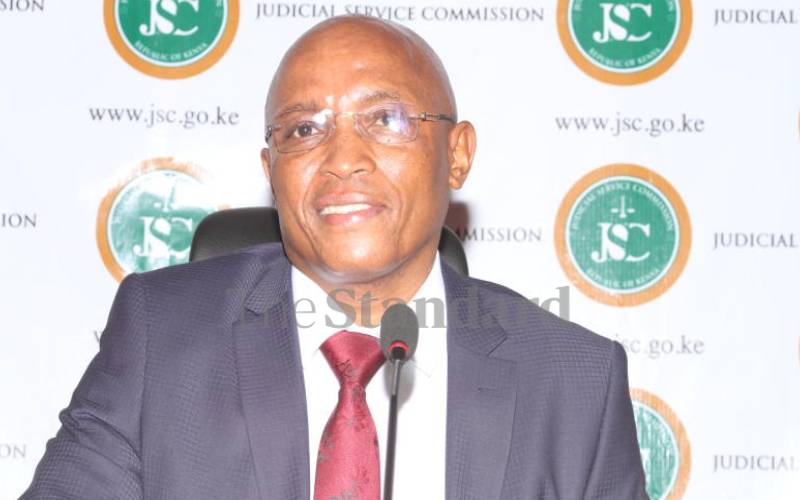×
The Standard e-Paper
Join Thousands Daily

Justice Nduma Nderi is interviewed at the Supreme court building on April 19, 2021 by the Judicial Service Commission (JSC) for the position of Chief Justice. [Collins Kweyu,standard]
The Supreme Court has never settled on how presidential election results should be relayed, Justice Nduma Nderi argues.